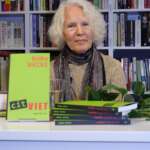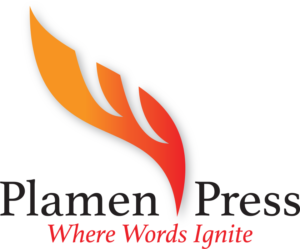For today’s Translation of the Week, we would like to present two poems, “Ancestral Mother” and “I am the Skin of a Drum”, from the bilingual collection To Taste the River by Latvian poet Baiba Bičole, translated by Bitite Vinklers.

Baiba Bičole, born in Latvia in 1931, left as a refugee during World War II and since 1950 has lived in the United States. Though she has been a major Latvian poet since the 1970s until Latvia regained its independence in 1991, she was known primarily in the West as an exiled poet, her work banned in Soviet-occupied Latvia. She is the author of six poetry collections and has received important Latvian literary awards from the Zinaīda Lazda Foundation, the Raisters Foundation, and the World Federation of Free Latvians (PBLA). For many years she taught Latvian literature in Latvian American schools and was the editor of the Latvian newspaper Laiks. This is her first poetry collection in English translation.
Bitite Vinklers is a translator of Latvian folklore and contemporary literature. Her translations have been published in numerous anthologies and journals, including The Paris Review, Kenyon Review, The Massachusetts Review, and Two Lines. Recent translation collections include Imants Ziedonis, Each Day Catches Fire: Poems (Red Dragonfly Press, 2015); Knuts Skujenieks, Seed in Snow: Poems (BOA Editions, 2016); and Aleksandrs Čaks, Poems (Riga, Latvia: Jumava Press, 2018). She lives and works as an editor in New York.
Senmāte
Viņa ir bļoda un karote reizē,
viņā iemērc, no viņas smeļ
vīrs, bērni un saime,
viņa ir gaišs, miltaini kūpošs
kartupelis,
balts piens un putraims sīks,
sviesta zeltainā acs
un tumšzaļš, sīvs sīpola laksts,
viņa ir galds, un viņa ir gulta,
no kuras, gadskārtām spraucoties
cauri,
izkāpj un pieceļas cilts
un dainu un villaines raksts.
Ancestral Mother
She is the bowl and the spoon at once,
dipped into, sipped from
by husband, children, and household,
she is the light, steaming
potato,
white milk and barley groat,
the golden eye of butter
and bitter dark-green scallions;
she is the table, and she is the bed,
from which, pressing through
the years,
climbs out and rises a tribe,
and the language of shawls and song.
•
Esmu bungu āda, indiānis.
Noslēpumaini jums pretī dunu,
kad pār mani jūsu pirksti
danco;
ļoganām gūžām un šļauganām
plaukstām
jūs kustaties manos sirdspukstos,
––ā! jūs jau esat man atdevušies!––
jā, sitiet vēl, drebiniet mani,
mana āda ir bieza, mani kauli
visās kapenēs pretī jums vārtās––
manas zemes zibens krustos
jums pakārties!
––Dūmu mēles jau daino,
vai dzirdat?
“I am the skin of a drum”
I am the skin of a drum, an Indian.
Enigmatically I pulse at you,
as your fingers
dance on me;
with loose hips and slack hands,
you move to the beat of my heart––
ah! you’ve already surrendered to me!
Keep drumming, yes, keep making me quiver,
my skin is thick, my bones
in all the graves are heaving––
on the lightning crosses of my land
may you be hanged!
––The tongues of smoke already sing:
can you hear them?
